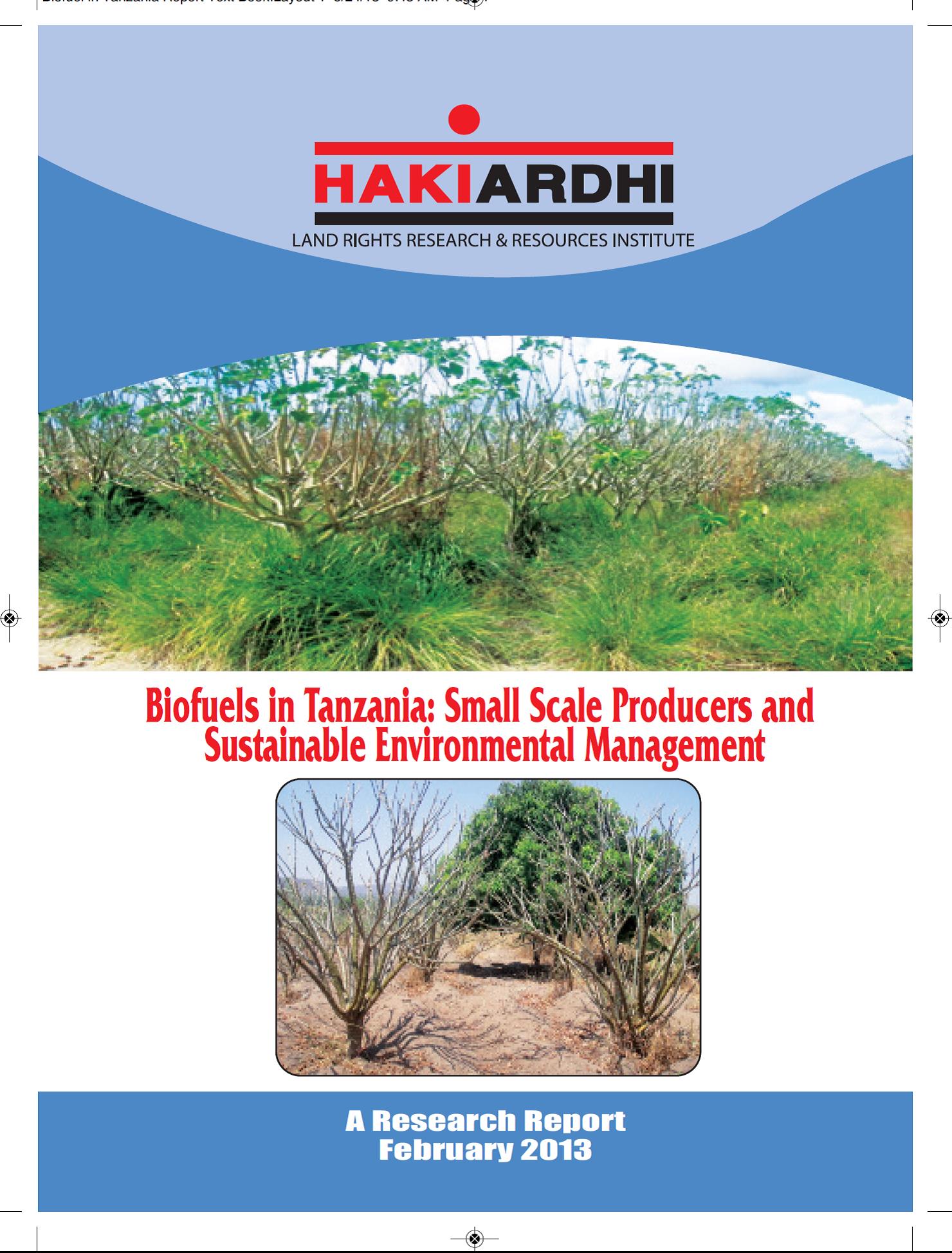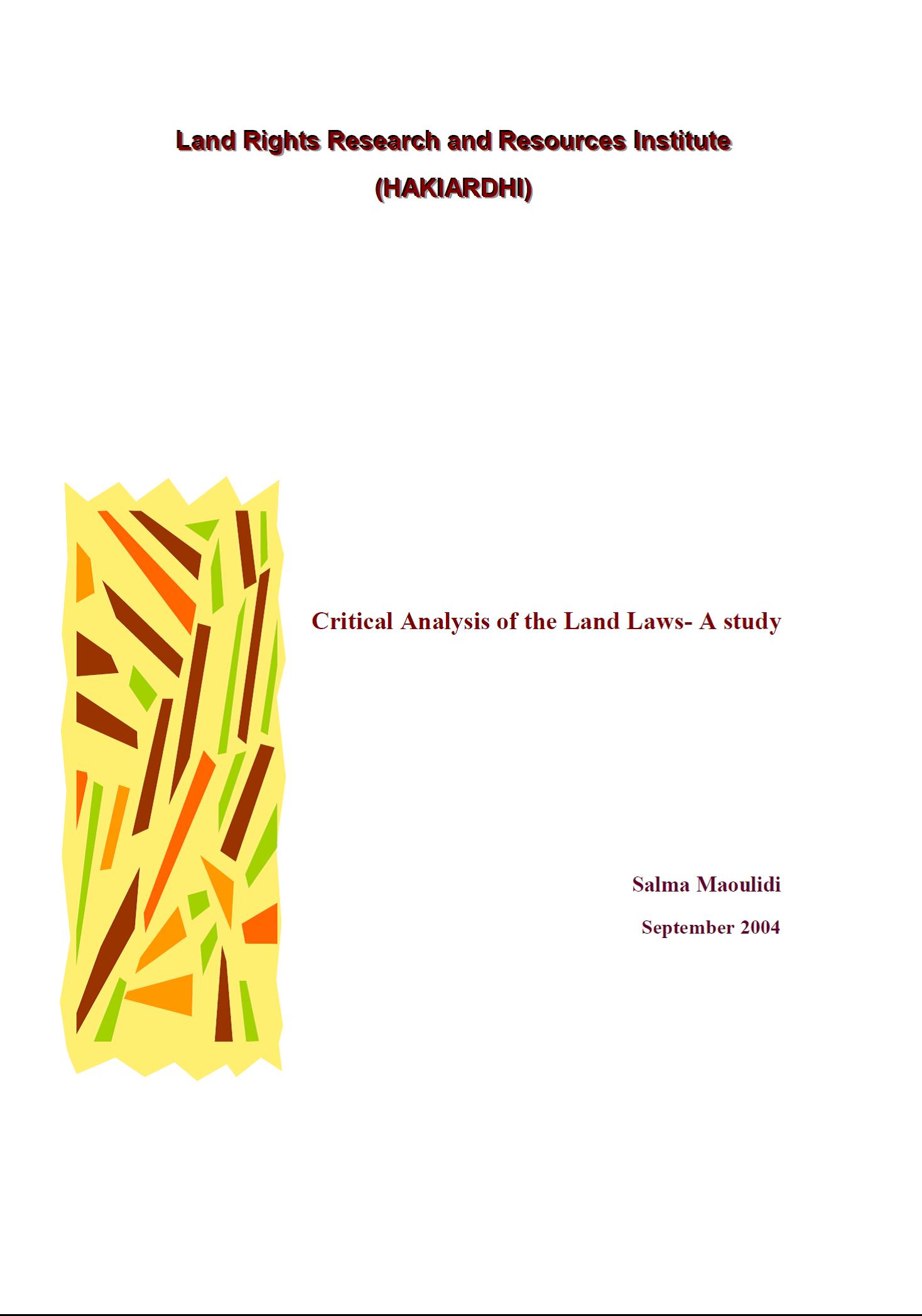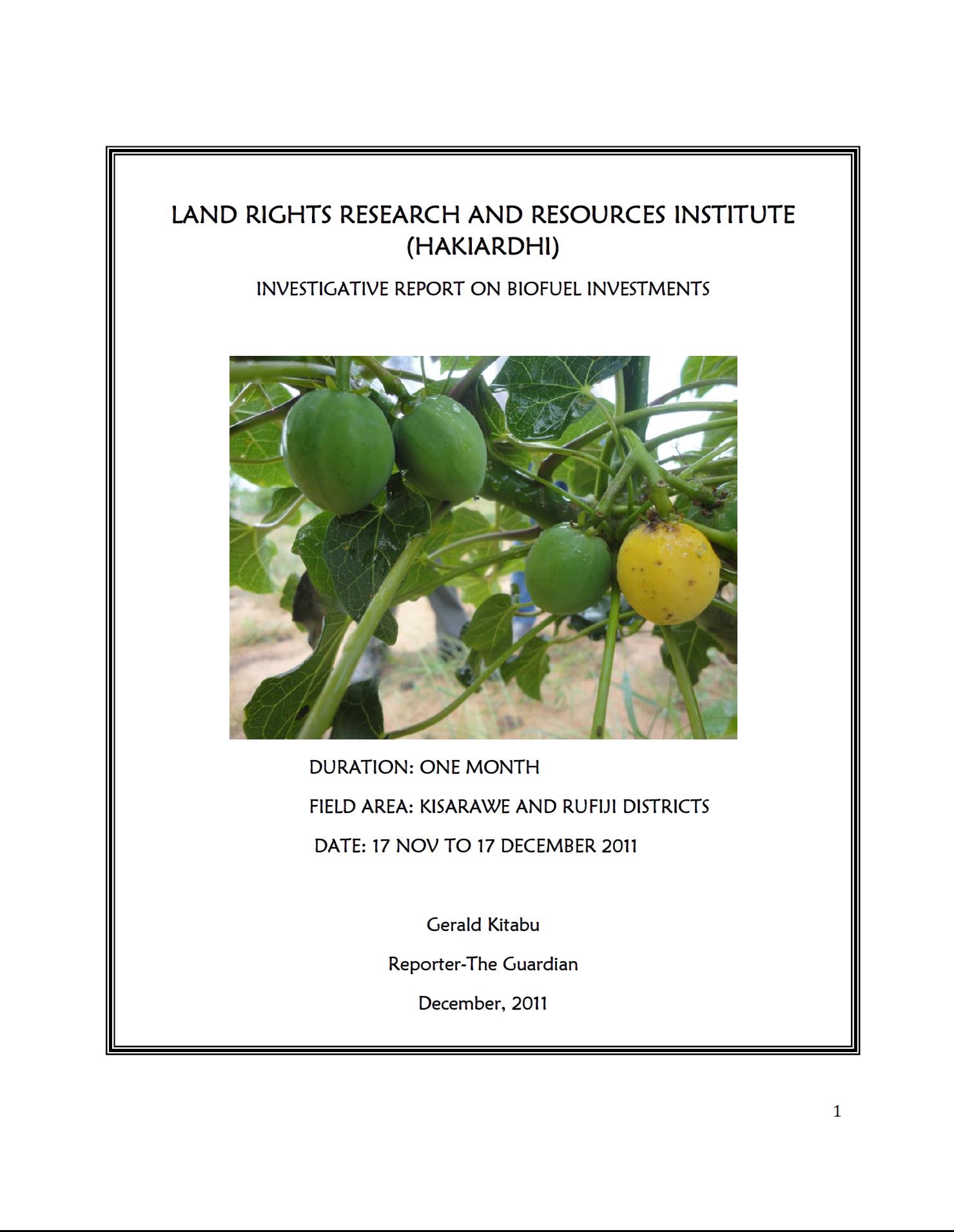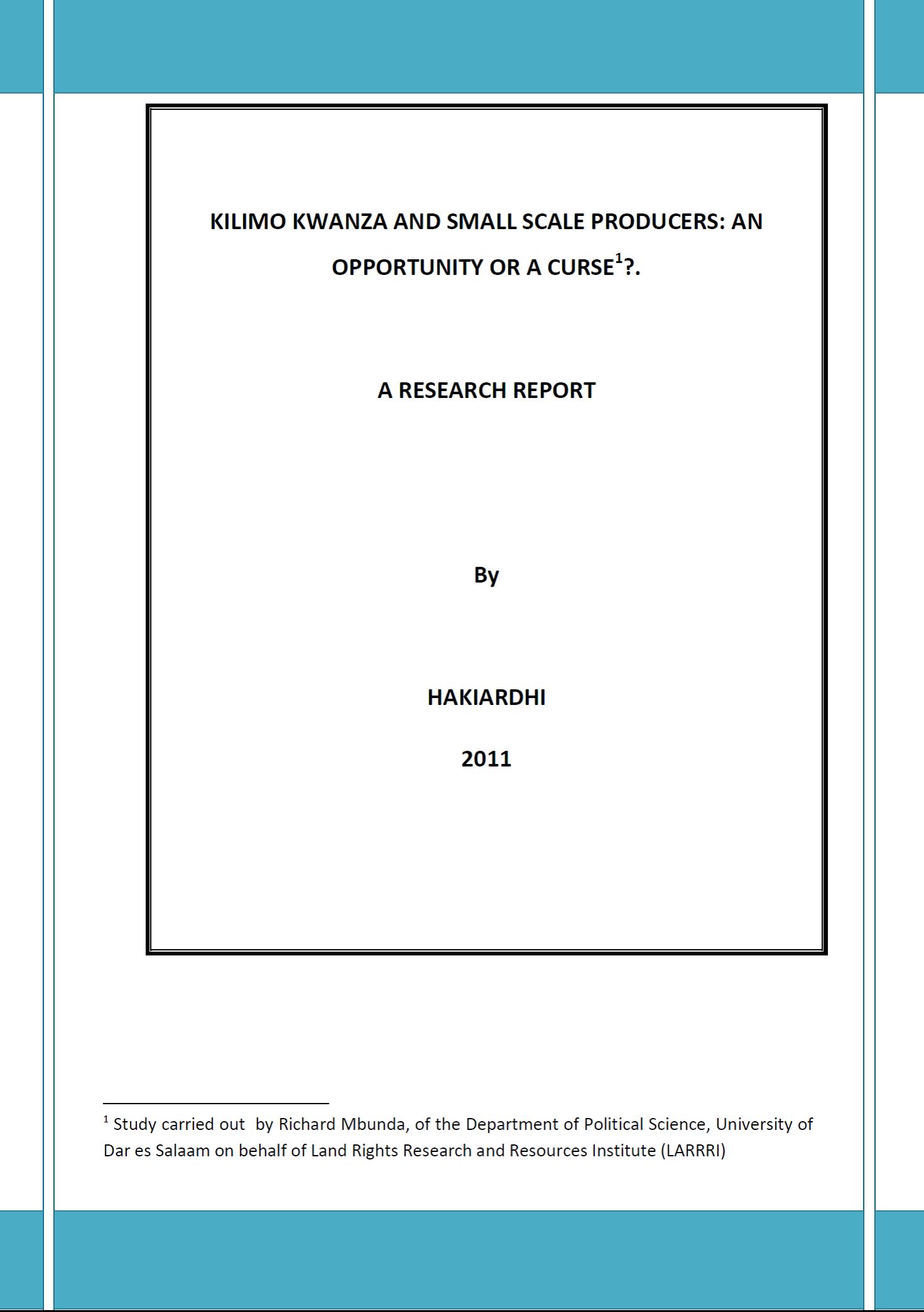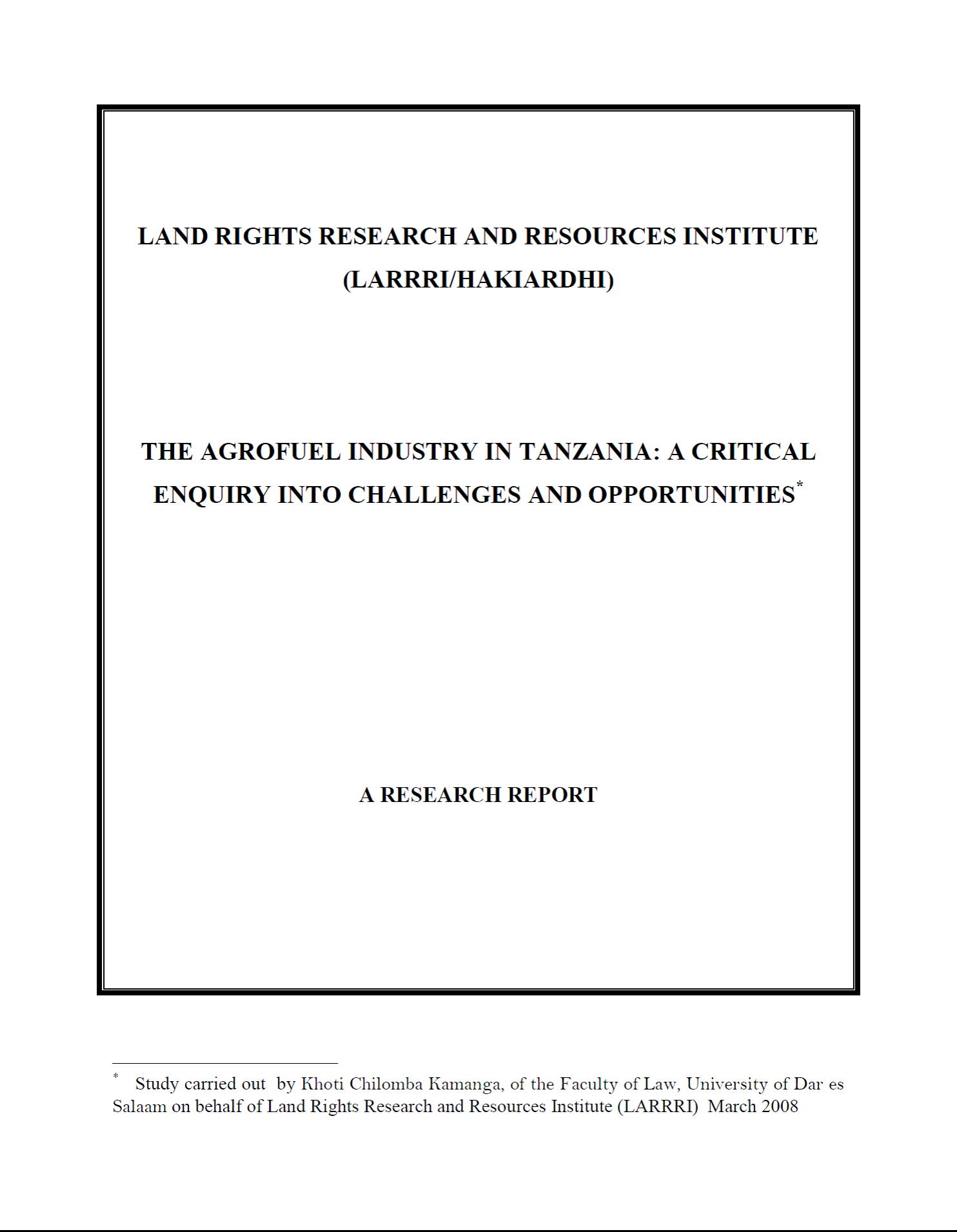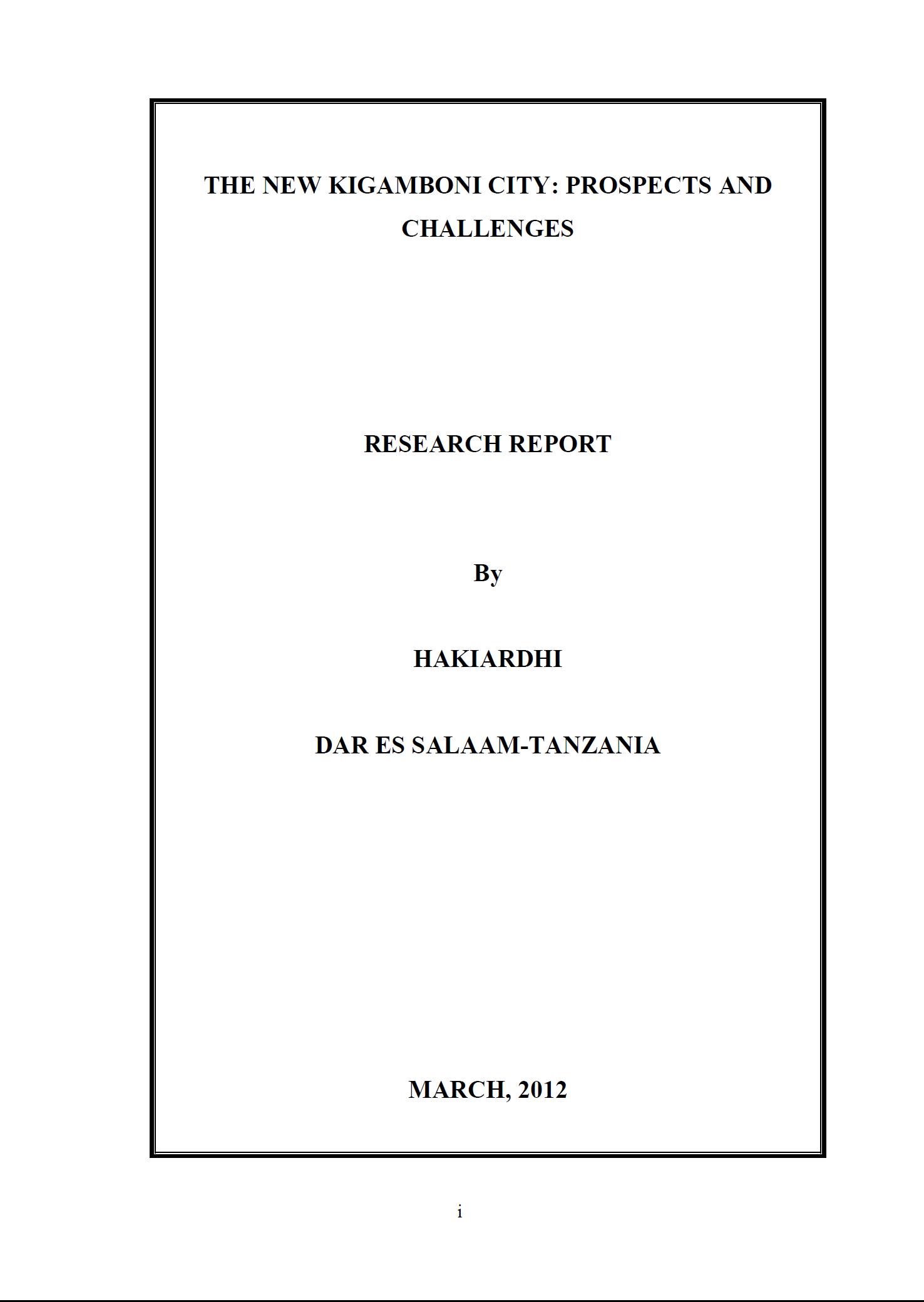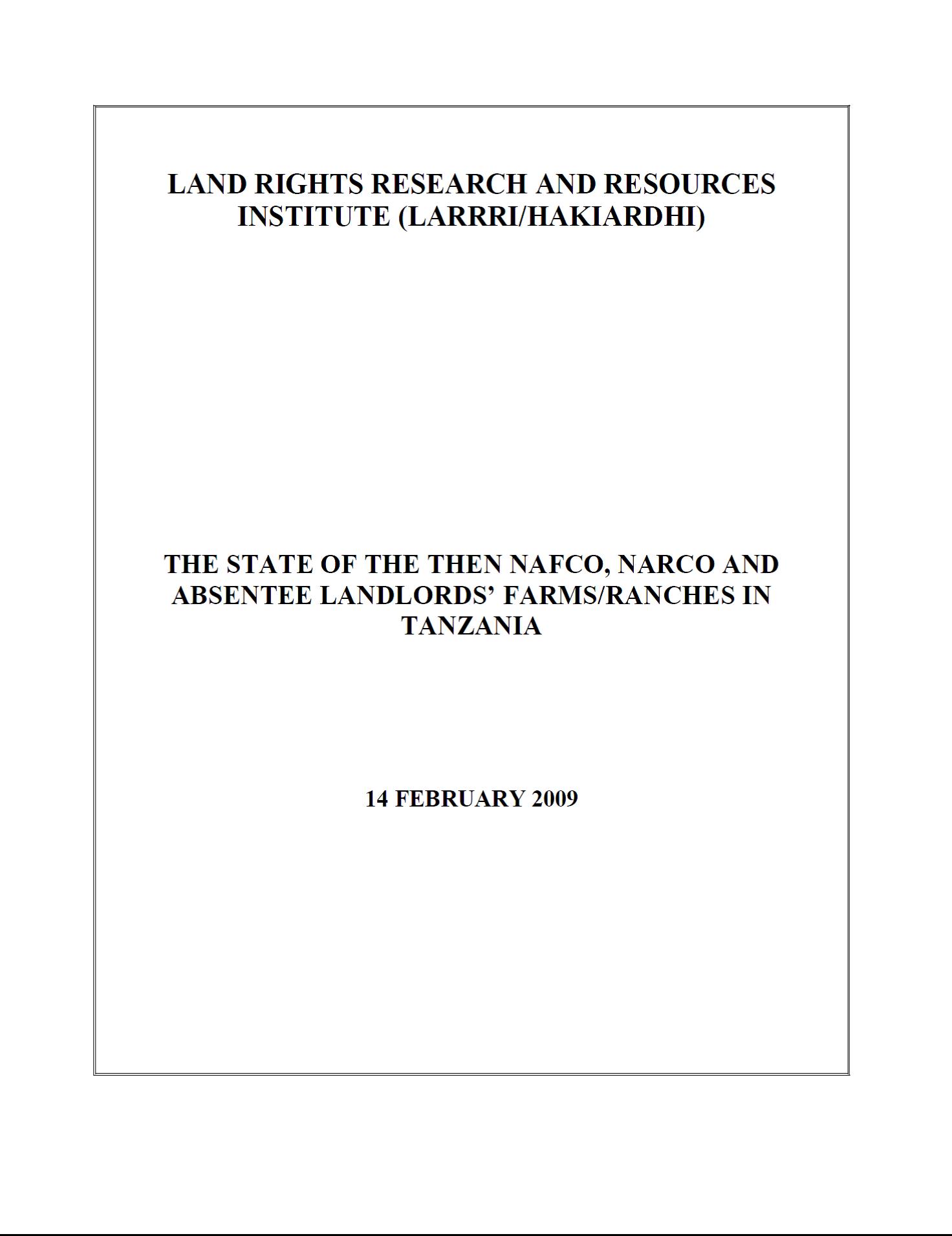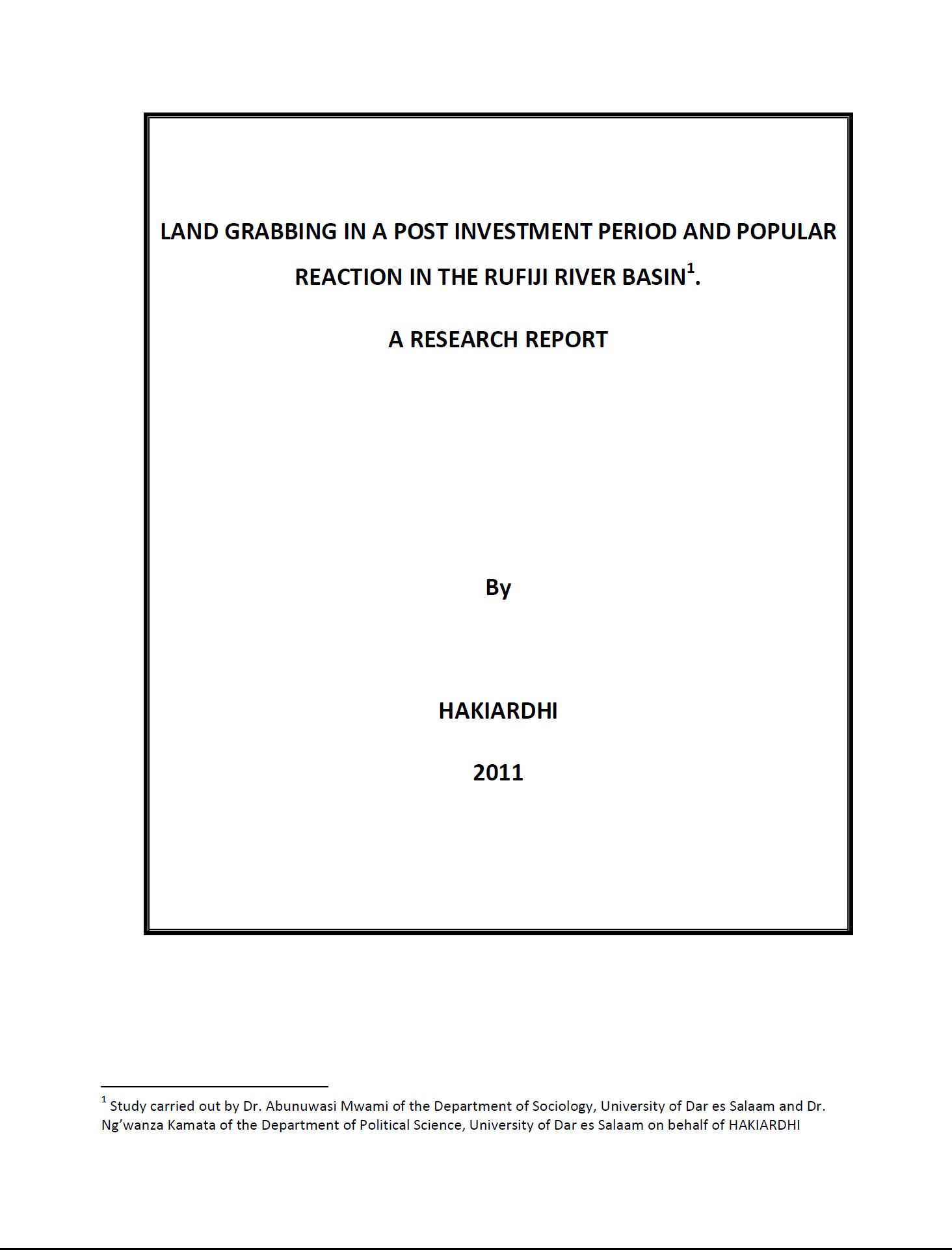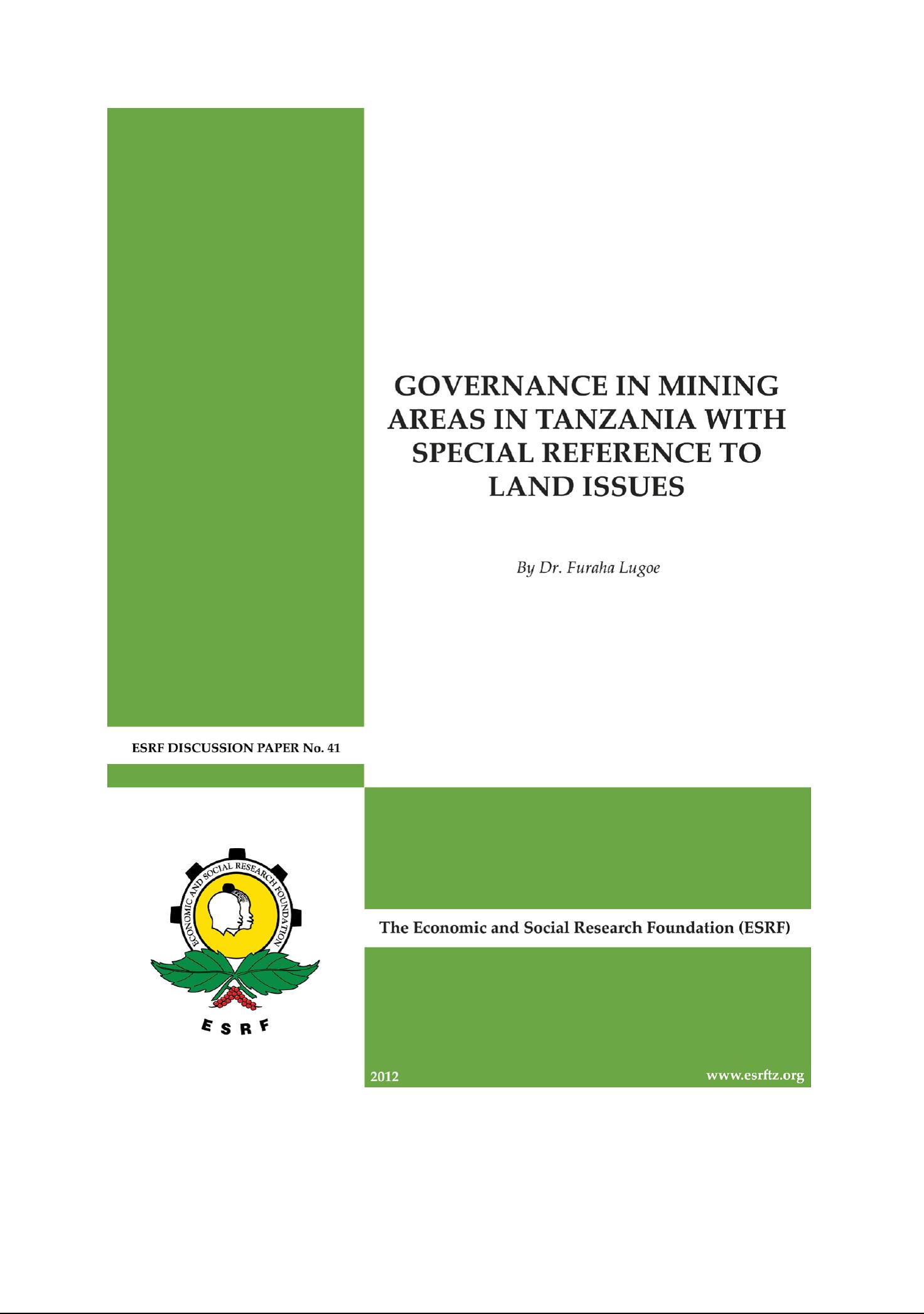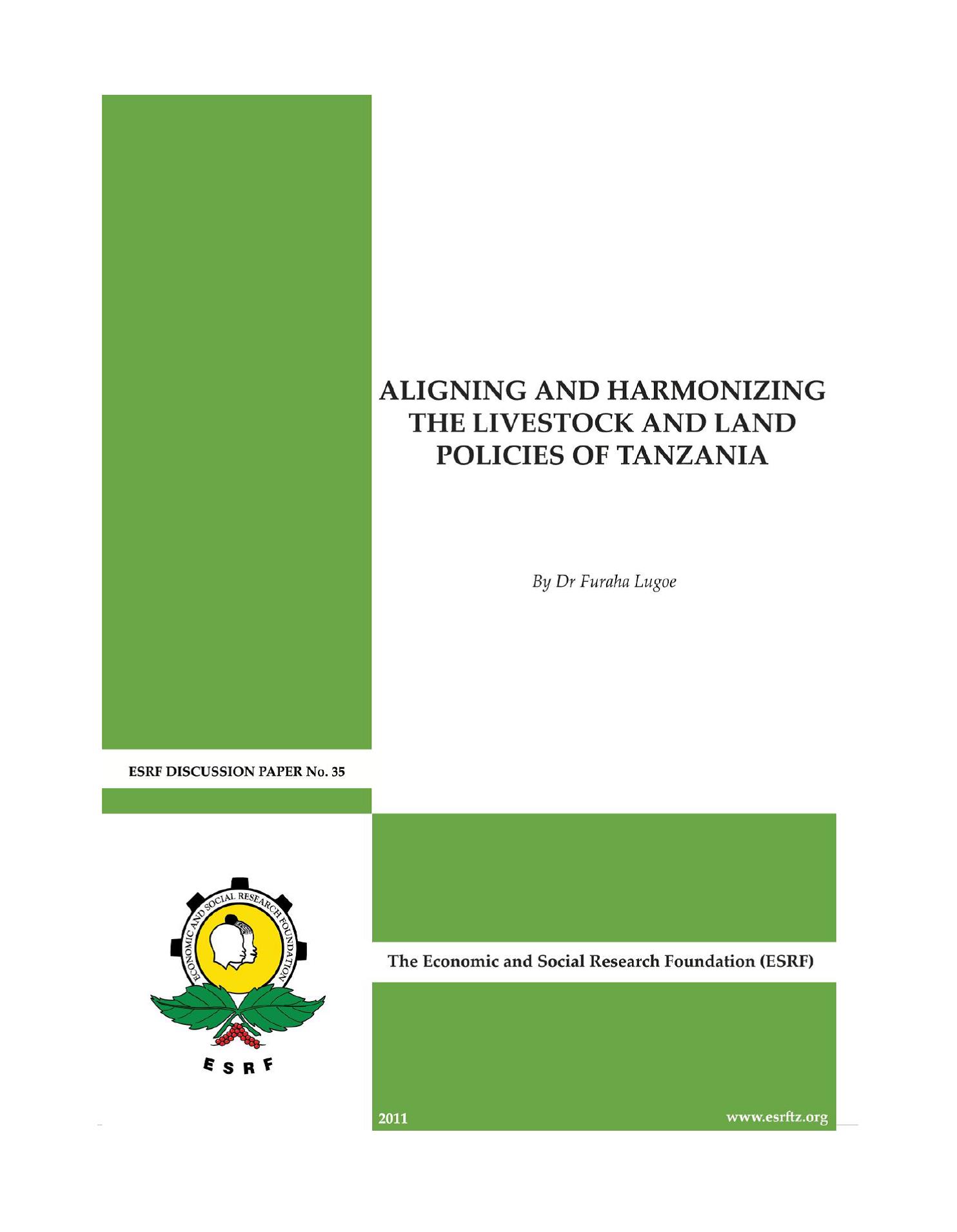
Topics and Regions
Godfrey Eliseus Massay is a lawyer and land tenure specialist.He has eight years of experience working on land rights and in the natural resource sector in Tanzania, and has written and published numerous articles on land rights in both national and international academic journals.
Details
Location
Contributions
Displaying 191 - 200 of 218Biofuels in Tanzania: Small-Scale Producers and Sustainable Environmental Management
The purpose of this study was to assess the bio-energy sector in Tanzania and to critically inquire the threats, benefits and opportunities to smallscale producers and sustainable environment management. Based on the terms of references this study focused on areas where land is earmarked or already in use for production of biofuels in Tanzania for both large and small-scale firms. The development of policy of liquid biofuels and other policies in general were examined.
Critical Analysis of the Land Laws- A study
The task at hand entails the critical review of the Land Laws of Tanzania, chiefly Act No.4 and Act No.5, 1999 and their subsequent revisions. This could not be done out of context, or by confining oneself solely to the statutes. It was pertinent to review the factors and processes that informed the legislation. Towards this end, an extensive literature review on various aspects related to land reforms in Tanzania was done.
Investigative Report on Biofuel Investments
Increasing investments in biofuel production follow a shift of energy demand,in developed nations from fossil fuel to bio energyto run machines. Consequently, there has is an accelerated influx of investors from the Europe, Asia and Americain quest for productive and fertile lands.
Proponents of the biofuel investments say the investment will improve among other things, agricultural production, add value to local products and markets and improve social services such as roads infrastructure, health facilities, clean water supply and education.
Kilimo Kwanza and Small-Scale Producers: An Opportunity or a Curse?
This study sought to follow up the implementation of the Kilimo Kwanza initiative with the view to establish reliable facts on its significance to small-scale producers, mainly peasants and pastoralists. To achieve this, the study began by examining the perception of small-scale producers about Kilimo Kwanza and it assessed their participation in the implementation process. Moreover, the study scrutinized the proposed amendment of the Village Land Act and its implication to small-scale produces if carried out.
The Agrofuel Industry in Tanzania: A Critical Inquiry into Challenges and Opportunities
Biofuel development in Tanzania places at stake 4 highly strategic national resources: land, water, forests and labour, and for generations to come. This alone is sufficient reason for the Tanzanian general public and rural communities in particular, to wrestle back the initiative and seek direct engagement in determining the best way forward for the nation.
The New Kigamboni City: Prospects and Challenges
In early 2008 the government of Tanzania through the Ministry of Lands, Housing and Human Settlements Development –MLHHSD, initiated a project to develop a new city at Kigamboni area in Temeke district of Dar es Salaam region. The reasons behind the decision were many but the most important factor was that the move would provide solutions to mitigate the urbanization problems of Dar es Salaam and its environs.
The State of the then NAFCO, NARCO and Absentee Landlords' Farms/Ranches in Tanzania
The study sought to determine the state of farms that belonged to the then National Agricultural Corporation (NAFCO), ranches that belong to the National Ranching Company (NAFCO) and land belonging to absentee landlords. Since any state is dynamic, this research report, then, is a socio-historical account of what has been happening within/out more than 543,604 hectares of ranch/farmland in the wake of the fall of nationalization and rise of privatization.
Land Grabbing in a Post Investment Period and Popular Reaction in the Rufiji River Basin
What has been the reaction of the rural producers and other land holders over these demands and actual land acquisitions? What does their reactions means in relation to ongoing land grabbing? While these questions are important this study was motivated by two major concerns.
Governance in Mining Areas in Tanzania with Special Reference to Land Issues
The economies of many countries such as the Gulf and Southern African States are to a considerable extent sustained by financial flows from extraction of mineral resources and fossil fuels. The discovery of such fortunes, in sufficiently viable quantities, can be a significant national blessing for effectively addressing development challenges. However, experience in other countries has shown that financial resources obtainable from mineral and fossil fuel extraction – the Extractive Industry, have not always assisted economic and social development.
Aligning and Harmonizing the Livestock and Land Policies of Tanzania
In light of persisting land use conflicts and marginal productivity on village lands, a research in the captioned topic was deemed necessary. This report makes a review of policies on land and livestock agriculture behind the backdrop of the Constitution of the United Republic of Tanzania, policies on land and agriculture, and aspirations for land reform. Violations in land rights and prevailing tenure insecurity lasting for decades have skewed mindsets of many users and the land administrators. Policy implementation and enforcement are in dire need of enhancement.

